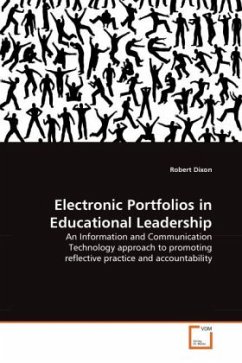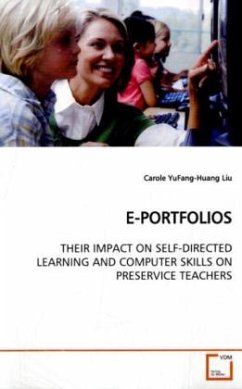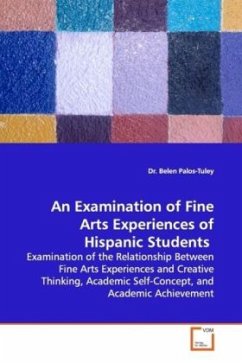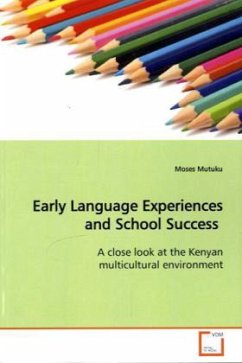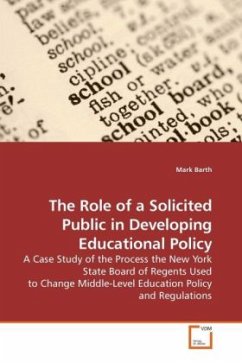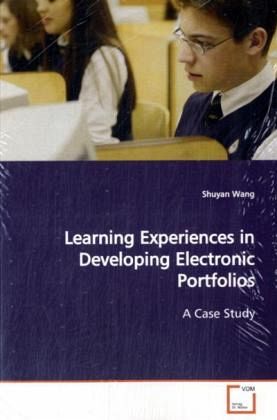
Learning Experiences in Developing Electronic Portfolios
A Case Study
Versandkostenfrei!
Versandfertig in 6-10 Tagen
39,99 €
inkl. MwSt.

PAYBACK Punkte
20 °P sammeln!
The use of electronic portfolios (EPs) as a means ofauthentic assessment is increasingly popular inteacher education programs. Portfolio assessmentallows teacher candidates to select and reflect onartifacts that demonstrate teaching competencies.When students add multimedia artifacts andreflections to portfolios, they present a much richerpicture of their abilities than possible intraditional assessments. This study investigates thestudents learning experiences in developing anddesigning their EPs. The findings show that creatingEPs helps students develop technology-relatedknowledge and skills...
The use of electronic portfolios (EPs) as a means of
authentic assessment is increasingly popular in
teacher education programs. Portfolio assessment
allows teacher candidates to select and reflect on
artifacts that demonstrate teaching competencies.
When students add multimedia artifacts and
reflections to portfolios, they present a much richer
picture of their abilities than possible in
traditional assessments. This study investigates the
students learning experiences in developing and
designing their EPs. The findings show that creating
EPs helps students develop technology-related
knowledge and skills as well as critical thinking and
problem-solving skills. The findings also indicate
that creating EPs is a meaningful task providing
opportunities for synthesis in the master s program.
The process of developing EPs involves metacognition
and self-evaluation because students reflect on their
strengths and weaknesses to set their future learning
goals. In addition, the findings demonstrate
that students become active, independent, and
motivated learners in developing EPs. Students
reported that they learned valuable insights from
creating EPs.
authentic assessment is increasingly popular in
teacher education programs. Portfolio assessment
allows teacher candidates to select and reflect on
artifacts that demonstrate teaching competencies.
When students add multimedia artifacts and
reflections to portfolios, they present a much richer
picture of their abilities than possible in
traditional assessments. This study investigates the
students learning experiences in developing and
designing their EPs. The findings show that creating
EPs helps students develop technology-related
knowledge and skills as well as critical thinking and
problem-solving skills. The findings also indicate
that creating EPs is a meaningful task providing
opportunities for synthesis in the master s program.
The process of developing EPs involves metacognition
and self-evaluation because students reflect on their
strengths and weaknesses to set their future learning
goals. In addition, the findings demonstrate
that students become active, independent, and
motivated learners in developing EPs. Students
reported that they learned valuable insights from
creating EPs.



